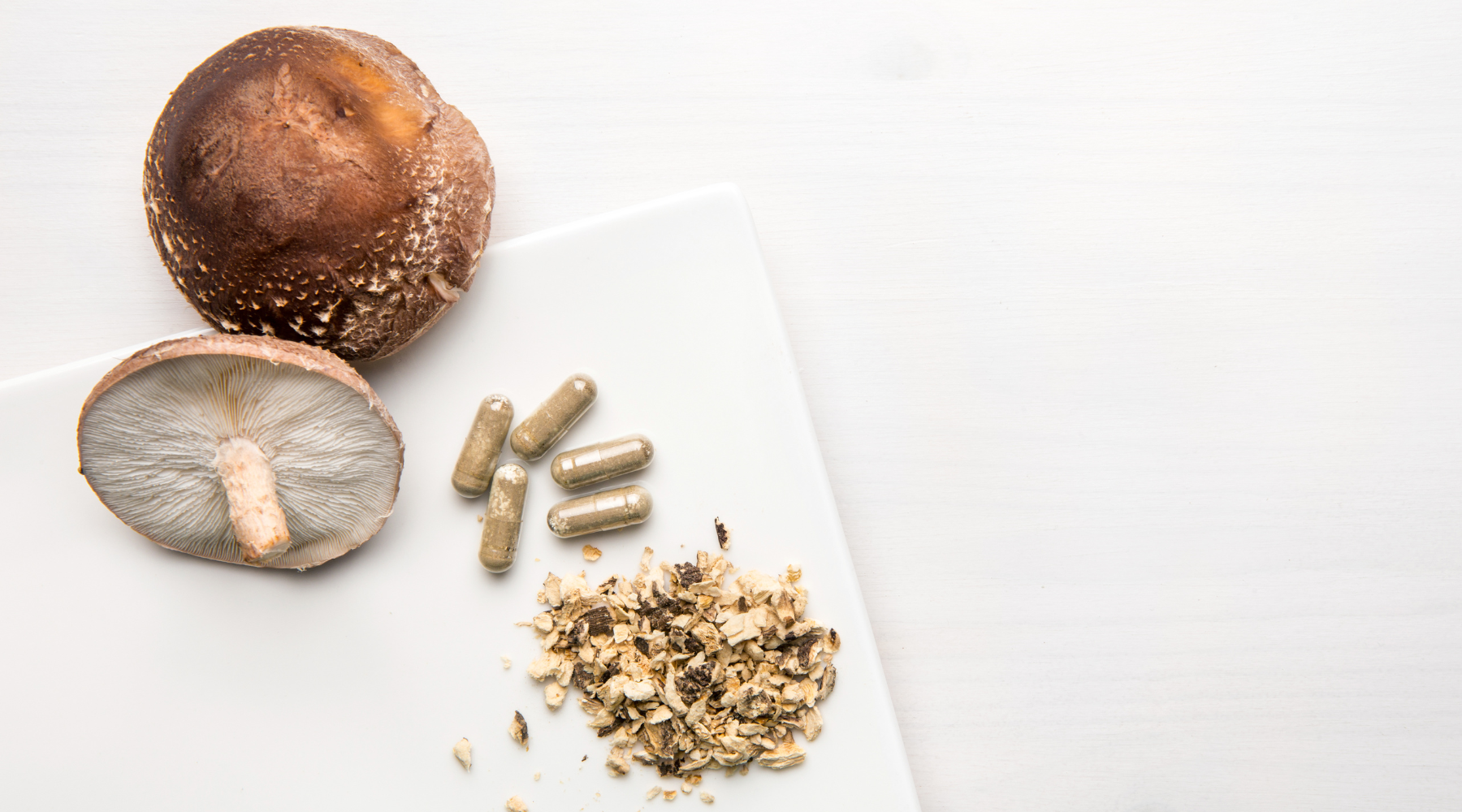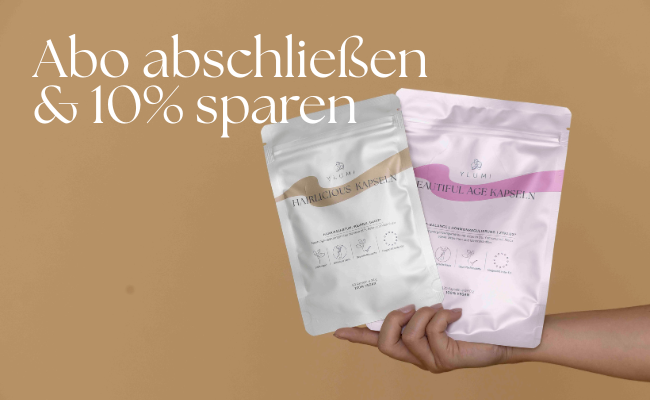
ADAPTOGENS – NATURE’S ANTI-STRESS REMEDY
The term “adaptogens” has been appearing more and more frequently in the media lately, and anyone who follows our Facebook or Instagram accounts will have come across this word a few times.
Building on their harmonizing effects, adaptogenic plant substances have been traditionally served as tea or mixed into dishes in traditional Chinese medicine (Ayurveda) for decades. In the Western world, these plant-based active ingredients have only received increased attention in recent years, and a real hype has emerged around adaptogenic mushrooms and herbs, especially in America.

What are adaptogens?
Adaptogens are plant substances that can help the body better cope with stress situations. The term (from the English "to adapt") was coined by the Russian researcher Nicolai Vasilevich Lazarev (1958) and refers to the regulating and harmonizing properties that certain adaptogenic natural substances can have on the human body.
Through studies, Lazarev discovered that adaptogenic herbs and mushrooms contain biologically active plant compounds such as flavonoids, polyphenols, terpenes, and polysaccharides that can help the organism better cope with physical and emotional stress situations.
Certain medicinal mushrooms and herbs, such as reishi or ginseng, are said to have balancing and regulating properties, which is why they have a positive influence on the body and can bring balance to the organism. These special plants usually grow in regions where they have to adapt to extreme environmental conditions such as cold, sunlight, or drought—no wonder, then, that they also help us humans become more resilient to stress.
In contrast to stimulants, adaptogens do not have the potential to cause addiction, but rather provide the body with new energy without causing physical side effects such as rapid heartbeat or sweating, as is sometimes the case with caffeine, for example.
Adaptogenic herbs in YLUMI products:
Our founder Amely's own medical history led her to TCM and adaptogenic herbs and medicinal mushrooms several years ago. Thanks to the use of botanicals and the holistic approach of TCM, her health improved significantly within a short period of time. Building on the knowledge of this ancient tradition, we want to provide everyone with access to proven adaptogens with YLUMI products, thus enabling them to experience their miraculous effects.
Traditional knowledge meets modern science
Our products combine traditional herbs, medicinal mushrooms, and botanicals with cutting-edge ingredients such as vegan hyaluronic acid from natural fermentation, as well as essential vitamins and minerals.
You can find out more about YLUMI’s story in various interviews You can read more about it or listen to it in a podcast, for example, by Dr. Janna Scharfenberg. The lovely Katrin from Sonrisa also published an article on the topic of "Lexicon of Adaptogens" a while ago. If you'd like to read more about individual ingredients, you can take a look HERE .
1 Panossian A. Understanding adaptogenic activity: specificity of the pharmacological action of adaptogens and other phytochemicals, 2017, Ann NY Acad Sci. 2017 Aug;1401(1):49-64.
2 Schulz, V., Hänsel, R. Rational Phytotherapy. A Guide for Medical Practice. 3rd edition, Springer Verlag, Berlin, Heidelberg, New York, 1996, pp. 301ff.
3 Panossian A. et al. Plant adaptogens III. Earlier and more recent aspects and concepts on their mode of action. Int. J. of Phytomedicine, 1999, 6(4), 287-300.
4 Lazarev, NV. VII Vsesojuzniy s'ezd fiziologox, biokhimikov i farmakologov 1947 (7th Trade Union Congress of Physiology, Biochemistry, Pharmacology). P. 579. Medgiz Moscow. Lazarev, N.V. Farmacol. Toxicol (1958) 21, 3, 81-86. 5 Brekhman, II and Dardymov, IV (1969) New substances of plant origin which increase nonspecific resistance. Annual Review of Pharmacology and Toxicology, 9, 419-430. doi:10.1146/annurev.pa.09.040169.002223)




